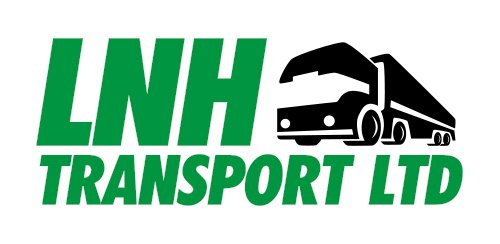The retail industry is gearing up for its busiest season, and as many businesses prepare for this period, there are many factors they will be considering, from driving demand to making strategic decisions regarding their delivery services.
As we approach the Golden Quarter, many retail businesses now must make the decision on what is the best, fastest and most efficient way to deliver their products.
Retail, wholesale and FMCG businesses often face the crucial decision of choosing between consolidated and dedicated delivery services. Both options have their own set of advantages and disadvantages, and selecting the right approach can significantly impact a company’s efficiency, cost-effectiveness, and customer satisfaction. In this blog post, we’ll explore the key differences between consolidated and dedicated delivery, helping you make an informed decision for your business this upcoming golden quarter.
First, let’s dive into the differences of these two delivery types:
What is Dedicated Delivery?
Dedicated delivery, also known as dedicated transportation, refers to a logistics and supply chain management approach where a single delivery vehicle or fleet is exclusively assigned to transport goods for a specific customer or supplier. In dedicated delivery, the transportation resources, including vehicles and drivers, are dedicated to serving the needs of a particular company or client. This approach offers a high level of control, customisation, and reliability in the transportation process.
What are the benefits of Dedicated Delivery?
There are many benefits of dedicated delivery ranging from safety aspects to reliability to make sure you have peace of mind:
- Dedicated delivery enables customers to have greater control and visibility of the delivery process, including the ability to set schedules and define delivery timeframes. For businesses with critical shipments, this level of control is essential in guaranteeing that their deliveries are handled as efficiently as possible, so their goods are delivered in the best way to meet the expectations of their end-customer.
- Another significant advantage of dedicated delivery is its unparalleled reliability. Businesses have precise control over when and how their goods are delivered, making it the safest choice – especially for critical stock that must reach its destination within a specific timeframe, as is often the case in industries like healthcare, retail, and manufacturing.
- When you choose a dedicated delivery partner, their priority is you and ensuring that your delivery is delivered as quickly and safely as possible. This exclusivity ensures that the transportation services align closely with the specific requirements and priorities of the dedicated customer. Also, the process can be set up almost immediately as dedicated delivery services have all the key processes set up and readily available, providing a wide range of trackable cargos to suit your specific delivery needs.
What are some of the disadvantages to Dedicated Delivery?
Some of the disadvantages of dedicated delivery include:
- Dedicated delivery can sometimes come with a higher cost than consolidated due to the need for separate vehicles, drivers, tracking and maintenance.
- Having more dedicated delivery vehicles on the road can contribute to traffic congestion in urban areas, potentially contributing to longer delivery times and negative impacts on overall traffic flow.
What is Consolidated Delivery?
Consolidated delivery, also known as shared or group delivery, is where multiple shipments from different customers or suppliers are combined into a single delivery vehicle for transportation to their final destinations. This method aims to optimise transportation resources.
What are the benefits of Consolidated Delivery?
The key benefits of consolidated delivery are:
- It can sometimes be the most cost-effective solution when it comes to delivering your goods as they are combined with multiple other deliveries therefore your business will only need to split the cost of the vehicle hire.
- Consolidated delivery can further enhance the efficiency of logistics procedures by employing well-optimised routing. With multiple shipments to deliver, this approach allows for the simultaneous delivery of various stock to different destinations through carefully planned routes, resulting in faster and more efficient deliveries.
What are the disadvantages of Consolidated Delivery?
Some of the disadvantages of consolidated delivery include:
- Consolidated deliveries can be more susceptible to delays, as multiple shipments or orders must be coordinated. If one shipment encounters an issue, it can affect the entire delivery chain, potentially leading to delays for all customers.
- Consolidated deliveries may require additional handling and sorting of goods, which can increase the risk of errors or damage during the loading and unloading process.
- If not managed properly, consolidated deliveries can result in missed or overlooked deliveries, causing frustration for customers and potential re-delivery costs.
- When multiple shipments are consolidated, there is a risk of products or goods being mixed or damaged during transit, especially if they are not adequately separated and secured.
Which method should you choose?:
When deciding which delivery method to choose as you approach this busy retail period. There are a few factors that you need to consider:
- Delivery timeframe: If it is essential for your goods to be delivered to the end-customer within a tight timeframe or can it be more flexible?
- Safety and security: Would it be an issue if the wrong cargo was delivered to the wrong customer for security reasons i.e is it private with sensitive information?
- Customer support: Does your delivery need a one point of contact and 24/7, 365 days a year trackable services, bespoke tailored solution, same day deliveries to meet your delivery needs?
- Cost consideration: What is your budget for the delivery process and are you willing to sacrifice the safety and security of your delivery?
- Shipping volume/types of good – Do you have many deliveries to deliver to multiple locations and do they need to be stored in a specific way?
If cost-effectiveness is your primary concern, and you don’t place your deliveries as the highest priority and isn’t time critical especially when they are combined with other supplier shipments, then consolidated delivery stands out as the most suitable choice.
If your primary goal is to enhance customer retention and satisfaction, and you value having control over the delivery process to ensure your products arrive within specific timeframes, then dedicated delivery is the ideal option for your business.
At LNH, we offer dedicated delivery services door to door, collection within the hour, same day collection and delivery services and our range of vehicles can deliver the same day anywhere in the UK.
Find out more about our dedicated delivery services and supply chain management here.

